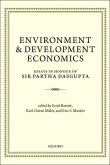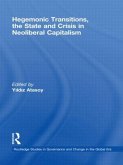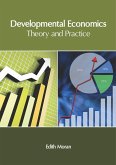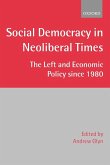Much is currently being made of the World Bank's apparent retreat from the neoliberal market economics of the Washington Consensus. New concepts and priorities like social capital and governance have been taken on board alongside the continuing pressures on developing countries for deregulation, privatization, free trade and so on. But how much has really changed? In what ways has the so-called post-Washington Consensus and its "New" Development Economics really parted company with the overly simplistic nostrums of the still dominant market economics? This important and thought-provoking volume makes clear for scholars, students and policymakers alike the most recent trends in theoretical argument and policy thinking within mainstream development economics.








